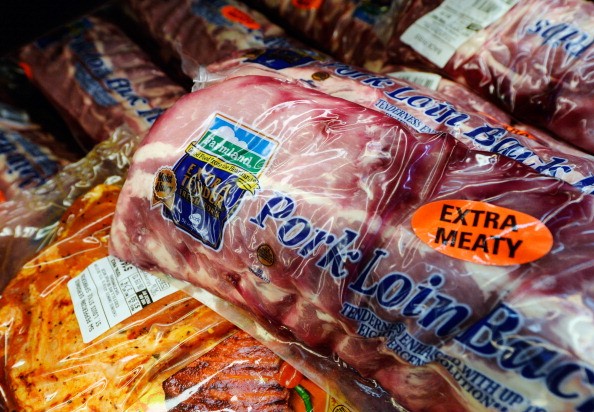China's WH Group is preparing to build a second Smithfield-branded sausage plant in China in the next few years to satisfy the country's appetite for foreign pork products.
Smithfield is a U.S. brand of sausages, bacon and other packaged pork products that was brought to China by WH in 2013 for $4.7 billion.
Using U.S. technology, unfreezing blocks of meat with industrial-strength microwaves unfreeze blocks of meat is achieved by WH in 20 minutes, which takes eight to 16 hours at other Chinese pork factories.
WH Group Zhengzhou plant is designed to be 18 degrees colder than other meat plants. Its ceilings are also one-third higher to help control condensation and limit the spread of bacteria.
The plant can manufacture over 90,000 kilograms of sausages, bacon and ham every day.
To help design its Zhengzhou plant, Smithfield sent its engineers, plant managers and food-safety officials from the U.S. to stay in China for months at a time, said Ken Sullivan, Smithfield's chief executive.
The facility utilizes only meat imported from Smithfield Foods Inc. in the U.S.
In January, WH Group's Smithfield unit purchased California-based pork processor Clougherty Packing LLC and two affiliates for $145 million. It was China's largest acquisition of a U.S. company at that period.
Wan Long, chairman of WH, noted that they have also adopted Smithfield's approach to food safety.
China accounts for almost half the world's pork consumption, and imports are surging as China's demand outstrips its supply of pork. In the past decade, U.S. pork exported to China has increased nearly 10-fold to 675,224 metric tons.
Chinese companies, after relying on partnerships with U.S. companies for transfer of technology, are now increasingly buying foreign technology outright as China attempts to transform from being export-dependent into one that is powered by research and innovation.
Companies from China spent a record $226 billion last year on assets abroad, including China National Chemical Corp.'s $43 billion agreement for Syngenta AG, a Swiss seed company.
Bank of China, which led a group of lenders in WH's $4 billion loan to purchase Smithfield, described the loan as its "social responsibility" to support Chinese companies that seek to expand overseas.
U.S. president Donald Trump, then the presidential frontrunner, criticized the deal by calling it "a rape of our country."



























